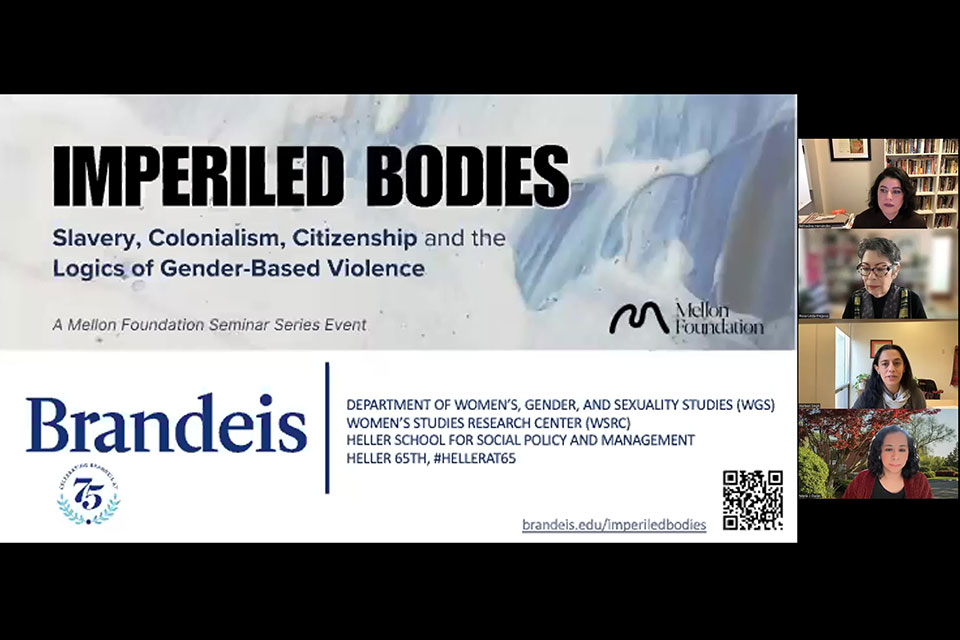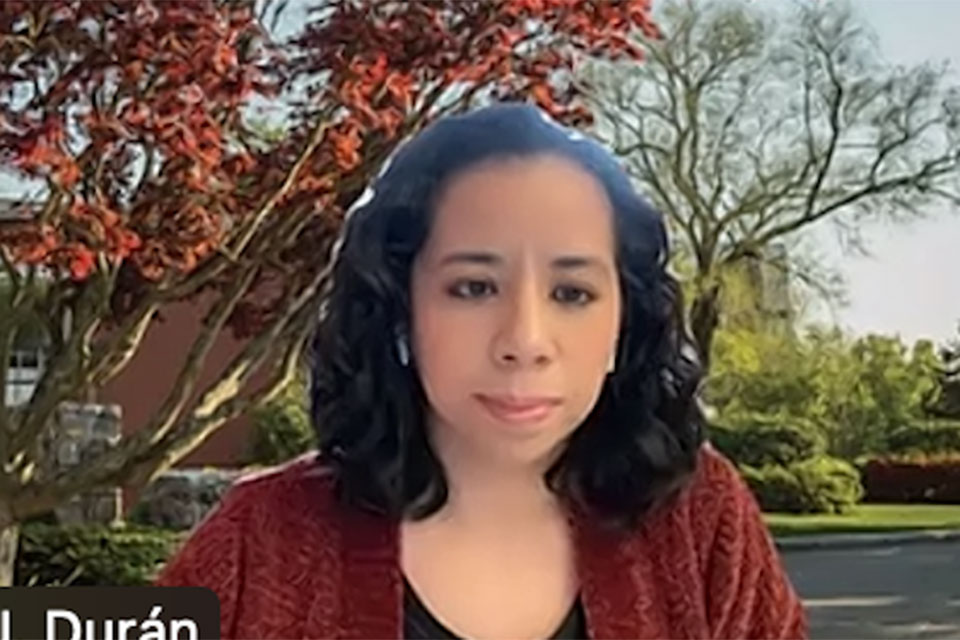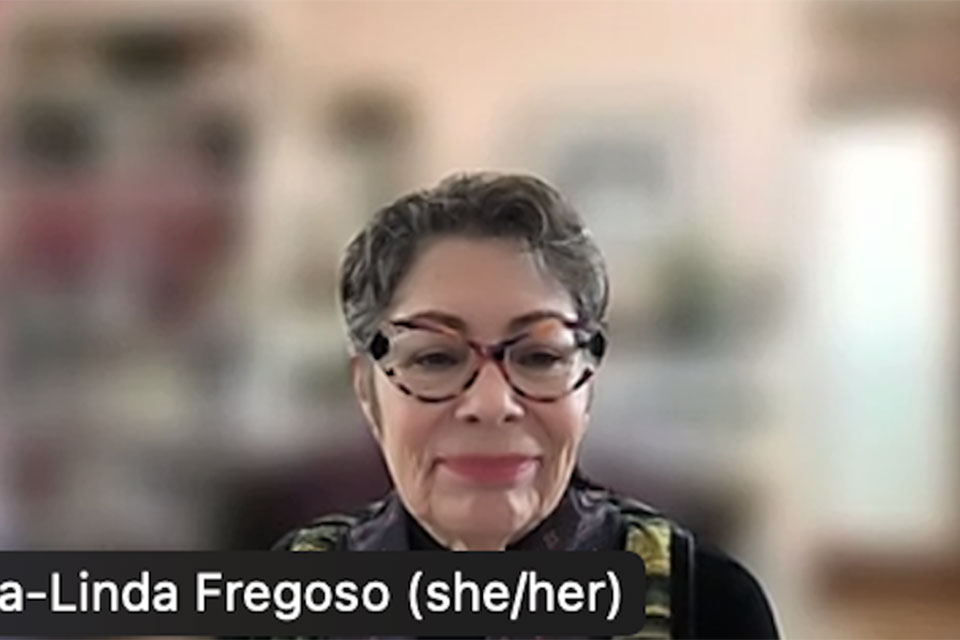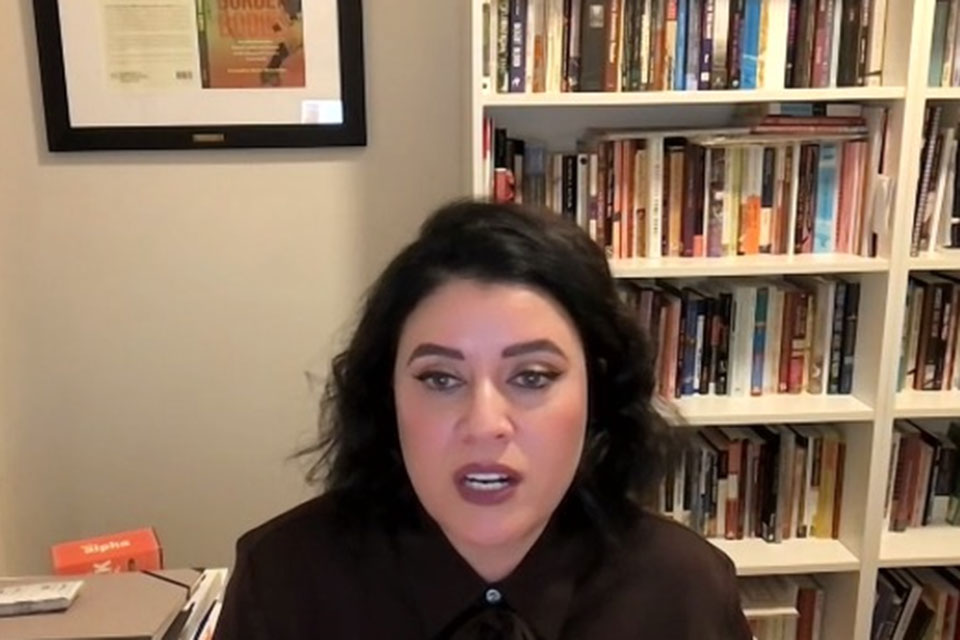Intersectional Approaches to Abolishing Feminicide
On Feb. 27, 2024, the Mellon Sawyer seminar hosted the session “Violence Knows No Borders: a Continuum of Violence for Latin American and Caribbean Women,” organized and moderated by María Durán (Assistant Professor of Latinx Cultural Studies, Brandeis University). Esteemed guest speakers Rosa-Linda Fregoso (Professor Emerita of Latin American & Latino Studies at the University of California, Santa Cruz) and Bernadine Hernández (Associate Professor of English at the University of New Mexico) documented longstanding social movements against feminicide as a condition of vulnerability to death for cis and trans women at the intersection of racial, gender, and sexual power structures.
Rosa-Linda Fregoso historicized Latin American contra feminicide movements that depart from existing conversations about “femicide” by interrogating gender as a single-axis lens of analysis and exposing the systemic and state-sanctioned dimensions of sexual violence. Such contra feminicide organizing, and the linked academic field of Feminicide Studies, centers the “intersectionality of struggles” in disrupting patterns of violence against cis and trans women. Mobilizing decades of expertise, and drawing on research from her recent book "The Force of Witness: Contra Feminicide" (Duke University Press, 2023), Fregoso advocated for the implementation of abolitionist frameworks of restorative and transformative justice over punitive models. Fregoso furthermore emphasized the “interconnection of feminist abolitionist struggles” across geopolitical boundaries.
Bernadine Hernández presented research from her award-winning book "Border Bodies: Racialized Sexuality, Sexual Capital, and Violence in the Nineteenth Century Borderlands" (2022), which puts forward a theory of sexual capital to demonstrate how discursive and material uses of poor Mexicanas’ bodies became economically instrumental in the nineteenth-century Southwest borderlands. Hernández examined cases of gender and sexual violence, from the hanging of Josefa "Chipita" Rodriguez in 1863 to the “West Mesa Murders” in 2009. Attesting to the challenges of archives and discourses that make violence the precondition to visibility for multiply marginalized women in the U.S.-Mexico borderlands, Hernández emphasized the need for archival work rooted in community accountability.
Panelists ultimately discussed wide-ranging coalitional and comparative strategies for denaturalizing global capitalism and its material and ideological consequences in Latin America and the Caribbean. Framed by María Durán’s calls to “address the expanse of gender-based violence and its contemporary conditions in the region,” Fregoso and Hernández’s talks generated rich discussion about how to bear witness to the complex lives and deaths of women facing linked structures of racial, sexual, and gender oppression.
Posted by Carmel Ohman, March 5, 2024
This event was part of the year-long Mellon Sawyer Seminar, “Imperiled Bodies: Slavery, Colonialism, Citizenship and the Logics of Gender-Based Violence” led by PI Anita Hill, co-PI Harleen Singh, and ChaeRan Freeze at Brandeis University. Brandeis University sponsors and resources include the Heller School for Social Policy and Management, the Department of Women’s, Gender, and Sexuality Studies, the Women’s Studies Research Center, the Mandel Center for the Humanities, the Hadassah Brandeis Institute, the Feminist Sexual Ethics Project, the Rose Art Museum, the Kniznick Art Gallery, the Gender and Sexuality Center, and the Prevention, Advocacy, and Resource Center. This seminar is among the signature events of the Heller 65th Anniversary year, Celebrating Knowledge Advancing Social Justice #Hellerat65.



